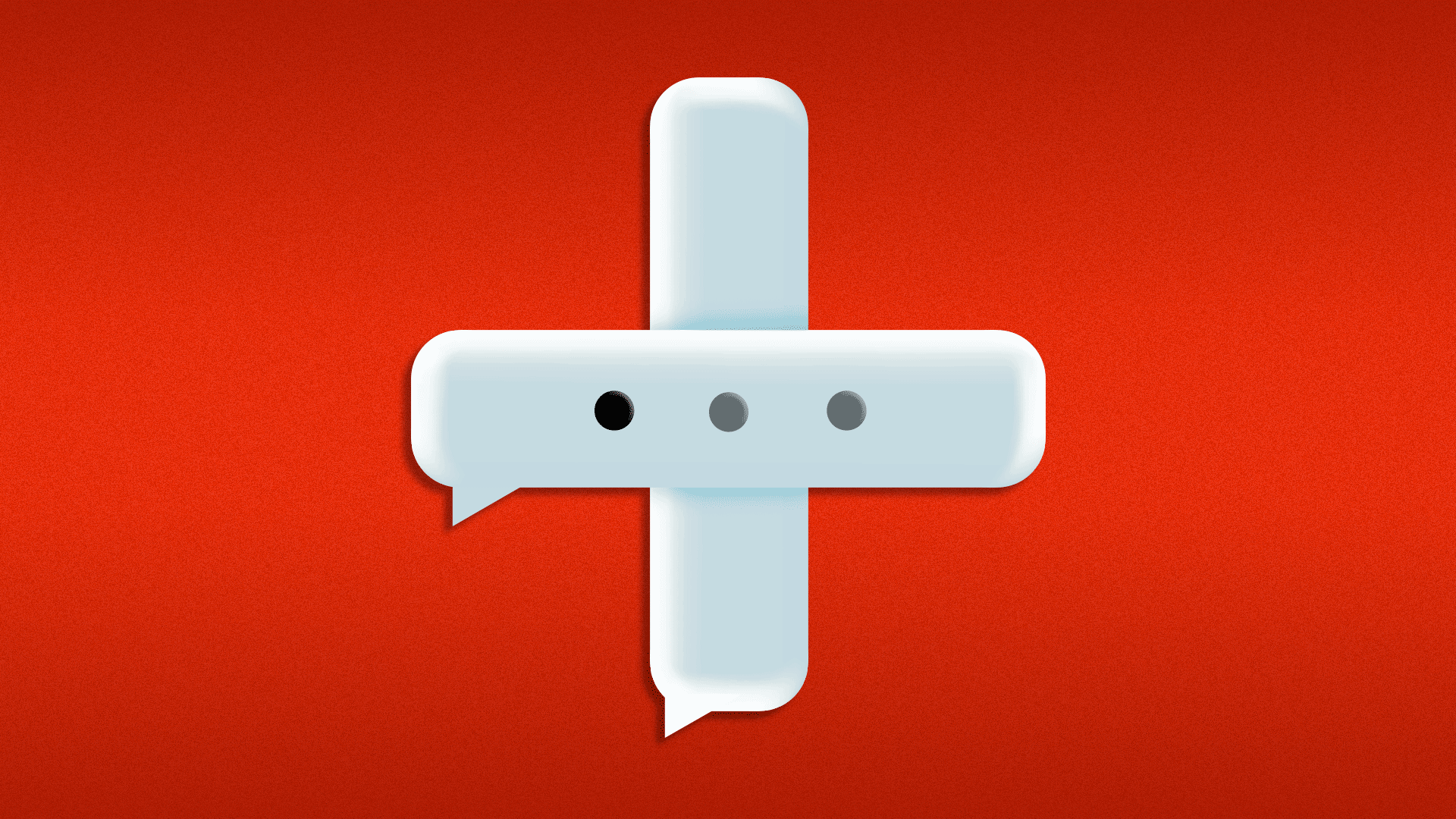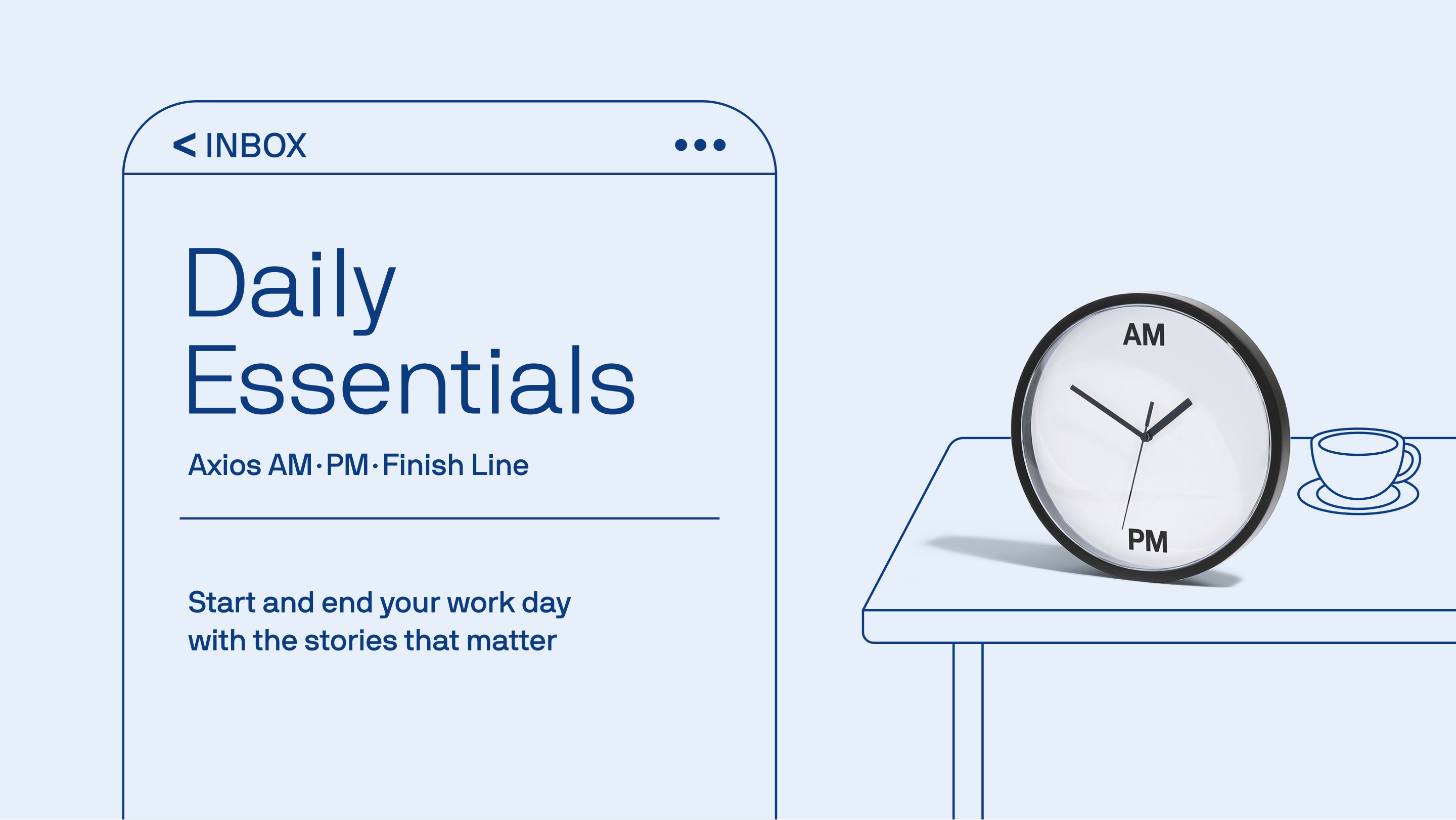| | | | | | | | | | | Axios Vitals | | By Tina Reed · Jan 24, 2023 | | Happy Tuesday, Vitals readers. Today's newsletter is 857 words or a 3-minute read. 👀 Check it out: Join Axios' Adriel Bettelheim and me today at 12:30pm ET for a virtual event exploring the impact of factors such as policy and social determinants on health outcomes and care options for seniors. Register here. | | | | | | 1 big thing: How opioid misuse is costing health systems |  Data: Premier Inc.; Chart: Tory Lysik/Axios Visuals The addiction crisis is increasingly eroding health systems' finances, with the treatment of opioid use disorder (OUD) costing hospitals more than $95 billion a year, new data provided first to Axios' Maya Goldman from Premier Inc. AI Applied Sciences shows. - That's 7.86% of all hospital expenditures, according to the data.
The big picture: The opioid epidemic has had an enormous human toll, and solving the crisis is critical for patients and for society. But fixing the epidemic can also improve hospital finances, Premier researchers wrote in a blog post. - Medicaid and private insurance cover the lion's share of non-elderly adults who are treated for OUD, including medication-assisted treatment, counseling and support services. But health systems still eat the cost of treating the uninsured and homeless, and some payers have been slow to reimburse virtual OUD care at parity with in-person visits.
- Opioid settlements from manufacturers, distributors and retailers now exceed $50 billion — but that's still just over half of hospitals' estimated annual costs for caring for overdoses and other issues in emergency departments.
Go deeper: The addiction crisis has worsened due to the proliferation of the synthetic opioid fentanyl, which is attracting more people 40 and under. - Patients with an OUD diagnosis average 32.5% higher cost per emergency department visit. Overdose patients often are at a high risk for multiple organ failure, hospitalization, increased costs due to ICU stays and unplanned readmissions after they're discharged.
- The Premier analysis, which compared data from 2017 and 2022, showed OUD patients were younger than other emergency department patients. They were more likely to be male, and Native American or white.
- "Collectively, healthcare needs to address [social determinants], OUD and myriad inequities experienced among patient populations to improve health and outcomes, and positively impact hospital and health system margins," the analysis says.
Read the rest. |     | | | | | | 2. Robocalls are OK — from Medicaid agencies |  | | | Illustration: Aïda Amer/Axios | | | | Federal and state governments and their partners can make Medicaid enrollment calls without running afoul of bans on robocalls and robotexts, the Federal Communications Commission said Monday. Why it matters: Pandemic-era flexibilities changed eligibility requirements for Medicaid, resulting in major enrollment jumps. But states will soon be able to redetermine whether recipients can stay on program rolls, and officials said they need to be able to reach large numbers of enrollees with information about their health coverage. - The ruling, which said agencies may, under certain circumstances, make auto-dialed and prerecorded or artificial voice calls or send autodialed text messages to raise awareness of enrollment requirements — came in response to a letter from HHS Secretary Xavier Becerra.
What they're saying: "The FCC confirmed that enrollees' provision of a telephone number on an application for coverage in Medicaid or other government health care programs constitutes prior express consent to be contacted at that number regarding enrollment eligibility," the FCC said in a statement. |     | | | | | | 3. Experts raise bird flu concerns |  | | | Photo: Mario Tama/Getty Images | | | | Health experts are closely monitoring the historic spread of H5N1 bird flu across the globe, saying they are concerned about its potential spread to humans. Be smart: To be clear, U.S. health officials and the WHO say the risk is low. Yes, but: As birds continue to succumb around the world and some other species become ill — grizzly bears in Montana were euthanized last week after they were found with the disease — experts say the threat can't be written off, Fortune reported. - A 9-year-old girl in Ecuador was recently sickened by the bird flu, but health officials concluded she was in contact with backyard poultry prior to falling ill.
The big picture: For now, the bird flu has resulted in the deaths of millions of wild birds as well as farm poultry, driving up egg prices, disrupting supply chains and devastating farms, the Wall Street Journal reported. What they are saying: While the likelihood of human transmission is "very low," if the bird flu were to make a sustained jump to humans, it would signify the start of a "new global influenza pandemic," Rajiv Chowdhury, senior epidemiologist and professor of global health at Florida International University, told Fortune. - "There is concern about it having pandemic potential," Wendy Blay Puryear, a molecular virologist at Tufts University, told the Guardian. "Before COVID was on anybody's radar, this was the one that we were all watching very closely."
|     | | | | | | A message from Axios | | Daily news worthy of your time | | |  | | | | Stay up to speed on the topics shaping our lives in politics, tech, business, media, science and the world. Delivered every morning, afternoon and evening from Mike Allen, Jim VandeHei and Erica Pandey. Subscribe for free | | | | | | 4. Tweet du jour: Much ado about AI |  | | | Screenshot: @cutler_econ (Twitter) | | | | With ChatGPT passing medical exams and co-authoring scientific research papers, there's been plenty of enthusiasm and handwringing over how artificial intelligence could impact the world of health care. Yes, but: A report out from McKinsey and Harvard researchers offers a more optimistic view of AI's broad potential impact: projected savings of up to $360 billion annually. Between the lines: AI could generate efficiencies for hospitals by optimizing operating room operations or detecting adverse events while helping doctors manage referrals. - Meanwhile, insurers could see savings through auto adjudication of claims or prior authorization, finding ways to prevent avoidable readmissions and improve network design, they wrote.
|     | | | | | | 5. Catch up quick | | 😳 The latest cyberattack on health care shows how vulnerable the sector is. (Washington Post) 💉 The FDA will weigh a process for annual COVID shots. (Axios) 👉 Why Britain's health service, a much-loved national treasure, is falling apart. (CNN) 🏥 Canada pursues private options to ease healthcare backlogs. (Wall Street Journal) |     | | | | | | A message from Axios | | Daily news worthy of your time | | |  | | | | Stay up to speed on the topics shaping our lives in politics, tech, business, media, science and the world. Delivered every morning, afternoon and evening from Mike Allen, Jim VandeHei and Erica Pandey. Subscribe for free | | | | Did someone forward this email? Subscribe here. Thanks for reading, and thanks to senior editor Adriel Bettelheim and senior copy editor Bryan McBournie for the edits. |  | | Your personal policy analyst is here. | | | | | | Axios thanks our partners for supporting our newsletters.
Sponsorship has no influence on editorial content. Axios, 3100 Clarendon Blvd, Arlington VA 22201 | | | You received this email because you signed up for newsletters from Axios.
To stop receiving this newsletter, unsubscribe or manage your email preferences. | | | Was this email forwarded to you?
Sign up now to get Axios in your inbox. | | | | Follow Axios on social media:    | | | | | |








No comments:
Post a Comment